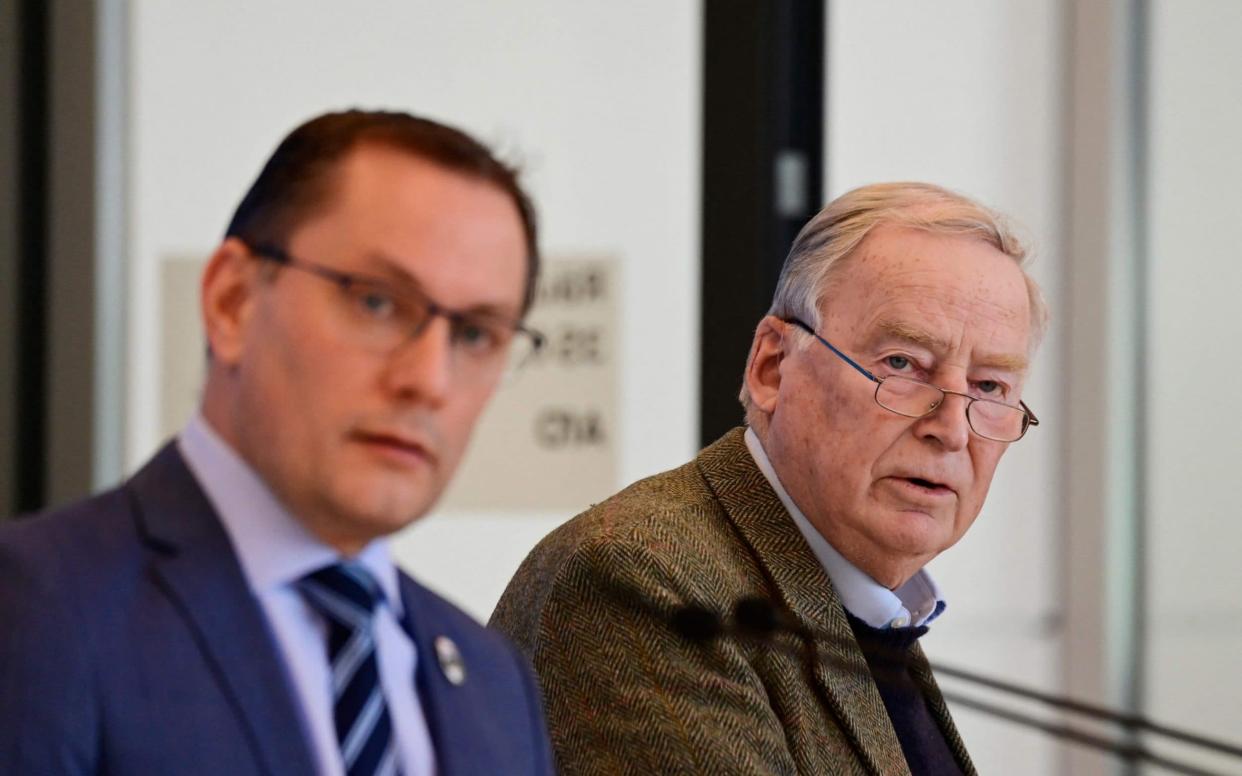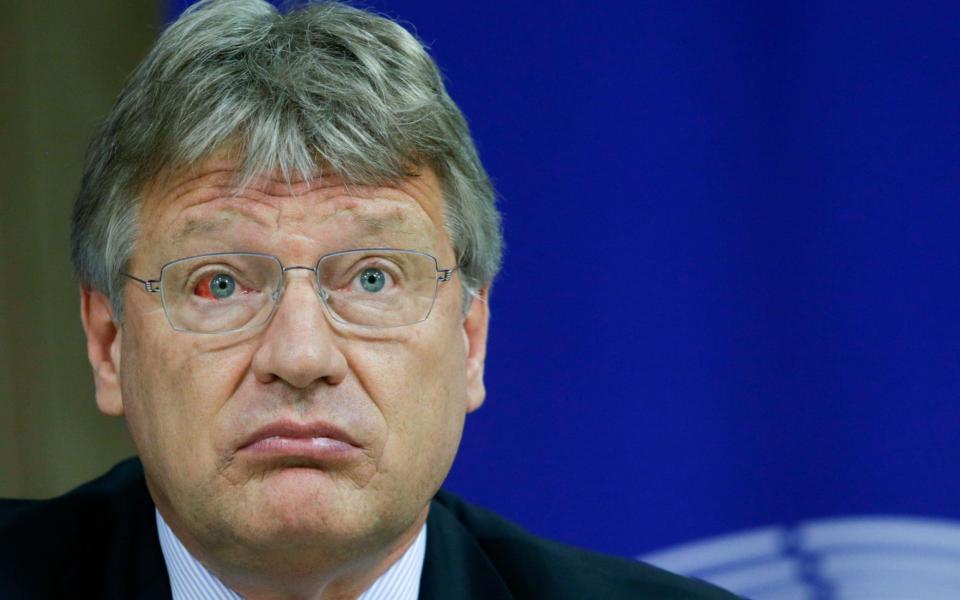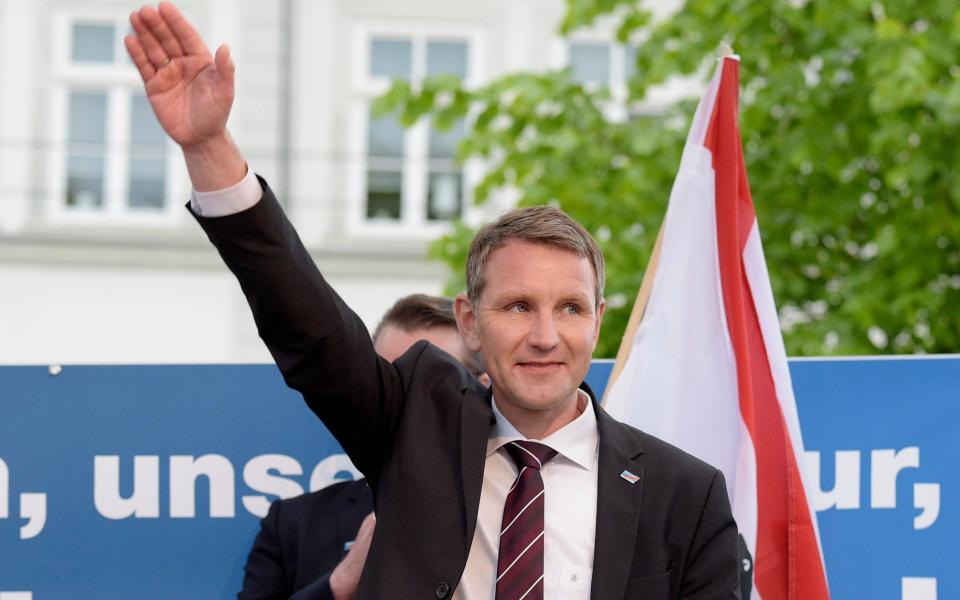AfD placed under surveillance by German intelligence as a suspected far-Right threat

The far-Right Alternative for Germany party (AfD) was designated as a suspected extremist threat by German intelligence and placed under surveillance on Wednesday.
The move comes amid widespread accusations from other German parties and Jewish groups that the AfD has fanned the flames of far-Right violence and anti-Semitism, and bears responsibility for a wave of attacks against the Jewish community and migrants.
It was rejected by AfD leaders as “purely political” and aimed at “massively damaging the party, especially in an election year.”
The AfD is the first party in the German Bundestag to be designated a suspected extremist threat. Germany’s domestic intelligence agency, the Office for the Protection of the Constitution (BfV), was unable to comment on the decision because of ongoing legal action, but it was widely confirmed by intelligence sources.
It means members of Germany’s largest opposition party can have their emails and phone conversations monitored and their movements watched. The intelligence services will also be authorised to recruit informants from party circles.
But MPs, MEPs and regional elected politicians from the party will not be subject to surveillance under the terms of an ongoing court case.
The move comes at a turbulent time for the AfD, which became the first far-Right party to win seats in the German parliament since the sixties in 2017, after campaigning on an openly anti-Islam and anti-migrant platform.
When it became the largest opposition party after the two main parties formed a grand coalition under Angela Merkel, its rise looked unstoppable.

But the AfD has seen its popularity fall back sharply in recent months and it looks unlikely to repeat the feat in September’s elections — it is currently fourth in the polls on 9 per cent.
A failed far-Right terror attack on a packed synagogue that killed two in 2019 proved a turning point in German politics, as rival politicians accused the AfD of fomenting an atmosphere of hatred that had inspired the attack and a series of other incidents, including the assassination of a local politician known for his support for migrants. Joachim Herrmann, the Bavarian interior minister, memorably described the party as “intellectual arsonists”.
The AfD has since been torn apart by in-fighting between hardliners and relative moderates. The BfV designated a hardline faction within the party that called itself Der Flügel, or The Wing, a suspected threat and placed it under surveillance in 2019
The Wing was subsequently dissolved, but the intelligence service is said to believe the move was purely cosmetic, and that the faction remains powerful within the party.
Jörg Meuthen, one of the party’s two leaders, has sought to purge the AfD of some of its more extreme elements, and last year he managed to force Andreas Kalbitz, a leading figure in The Wing, out of the party. But it came at a cost. Mr Meuthen faced a rebellion and was only just able to cling on as leader.

Although Mr Kalbitz has been forced out, The Wing’s leader, Björn Höcke, remains a power within the AfD. Mr Höcke, who has been compared to Hitler by German television, has called for a “180-degree turn” in Germany’s culture of atonement for the crimes of the Second World War.
He is said to have been shielded within the AfD by Alexander Gauland, the party leader, who called the Nazi era “a speck of birds*** in a thousand years of glorious German history”.
The decision to place the entire party under surveillance was welcomed by Josef Schuster, the president of Germany’s Central Council of Jews, who warned of a “a clear line towards radicalisation” within the party.
“With its destructive policies, the AfD is helping to undermine our democratic structures and discredit democracy,” Mr Schuster said. “The state cannot stand by and watch this go on.”
It was also welcomed by Angela Merkel’s Bavarian sister party, the Christian Social Union (CSU). “Defending democracy means naming and fighting the opponents of a free democratic order,” tweeted Volker Ullrich, a CSU spokesman.
The AfD vowed to fight the decision in the courts. “This is scandalous and neither legally nor constitutionally tenable,” said Tino Chrupalla, the joint party leader.
“This will not stand before the constitutional court,” said Alice Weidel, the joint parliamentary leader.

